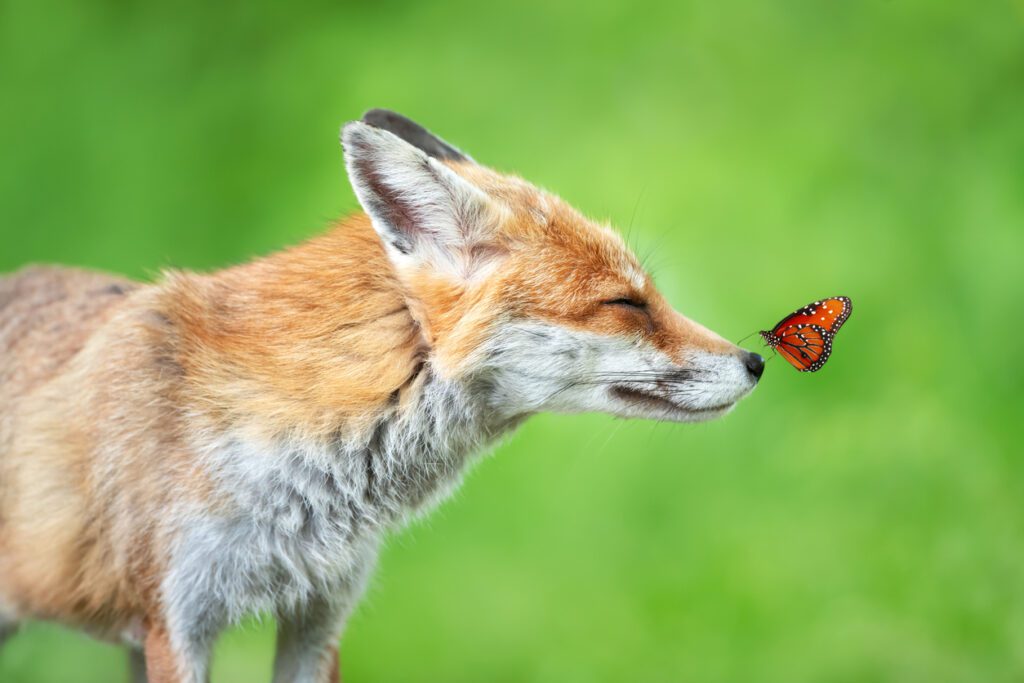Because I have become aware that one or more gray foxes are in my backyard almost daily, I wondered if I should try to make contact with these cute little guys, perhaps through food.
Have you ever gazed at the wild grace of a fox and wondered if these majestic creatures could one day become part of our domestic lives, much like dogs have? The notion of domesticated foxes isn’t just a dream; it is becoming a reality in certain regions. With trail cameras capturing gray foxes visiting my backyard almost nightly, the idea of fox domestication feels both intriguing and possible. But what does it indeed mean for a fox to be domesticated, and is it feasible across the board?
The Journey from Wild to Domesticated
Foxes share more traits with dogs than one might initially think. This is a testament to the fascinating behavioral flexibility within the canid family, as Dr. Alexandra Horowitz, author of “Inside of a Dog,” observes. Indeed, domesticated foxes exist in parts of the world, and their behaviors show an uncanny resemblance to our canine companions. These creatures are beautiful and intriguing in their potential for domestication.
Yet, the question remains—how do foxes transition from wild creatures to potentially domesticated pets? It’s a complex dance of genetics, environment, and behavioral shifts. Urban foxes, for instance, are believed to be in the early stages of self-domestication. Dr. Chris Newman, a wildlife biologist, notes, “The adaptation of urban foxes suggests a significant behavioral shift, which could be an early stage of self-domestication.”
The Science Behind Domestication
Domestication is not as simple as taming a wild animal; it involves genetic evolution driven by selective breeding over generations. Dr. Elinor Karlsson of the Broad Institute emphasizes, “Understanding the genetic underpinnings of domestication in foxes offers insights into the complex interplay of genetics and behavior.” This interplay determines how or if a species can be domesticated.
Take the famed Russian silver fox experiments, for example, where selective breeding for friendliness was explored. While these efforts have shown promise, they also reveal the challenges ahead. Dr. Clive Wynne, a dog and wolf behavior expert, states, “Selective breeding for friendliness in foxes is a fascinating experiment but comes with significant welfare and ethical considerations.”
Ethical Considerations and Challenges
With the potential for domestication comes great responsibility. The animals’ welfare must be paramount, ensuring their physical and psychological well-being. Ethical breeding practices should prevent unnecessary suffering and ensure the long-term health of domesticated foxes. Additionally, pet owners must provide appropriate care and living conditions, respecting the species’ natural behaviors and needs.
Furthermore, we must consider the potential impact on wild fox populations. Domestication could introduce diseases, create resource competition, or lead to genetic dilution. It’s crucial to balance our desire for domestication and the need for wildlife conservation, ensuring we protect and preserve wild fox populations and their habitats.
As we explore this possibility, it’s crucial to understand the complex dynamics involved. The potential for domestication in specific fox populations is promising, especially as urban foxes show signs of self-domestication. However, we must approach this endeavor cautiously, mindful of the ethical implications and challenges.
Foxes are a vibrant thread in the grand tapestry of life, their wild spirit captivating and inspiring.
Thank you for reading this blog post. If you have any questions or comments, please leave them in the Comments section below.
Copyright © 2019. I Don’t Know All The Answers, Nikki Mastro.
All of my photographs and documents are Copyrighted.
The main photo included in this blog post is from the iStock.com library.
No part of this website, including text, photographs, and documents, may be reproduced, stored in a retrieval system, or transmitted in any form or by any means without written permission from the copyright holder. All unauthorized use is strictly prohibited. If you choose to copy or share any information from my site, you must provide a link to the source. I appreciate your cooperation.
For further information concerning “I Don’t Know All The Answers.”
– Website and Blog: https://www.idontknowalltheanswers.com
– Facebook: https://www.facebook.com/Nikki.L.Mastro/
– Instagram: https://www.instagram.com/i_dont_know_all_the_answers/
– Linkedin: https://www.linkedin.com/in/nikki-mastro-05455a3a/
– Youtube Channel: https://www.youtube.com/@idontknowalltheanswers1954

